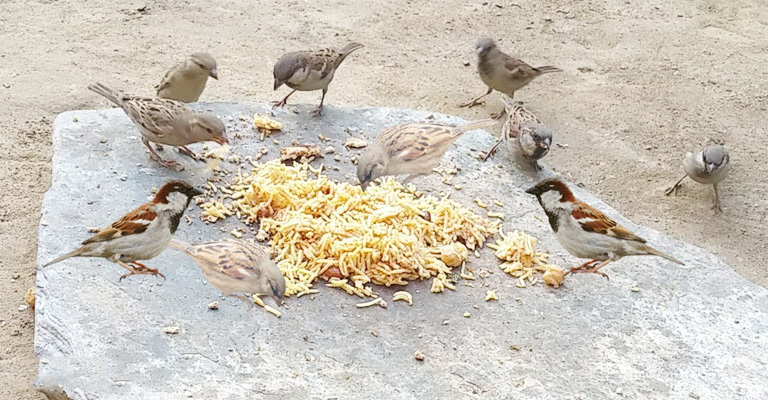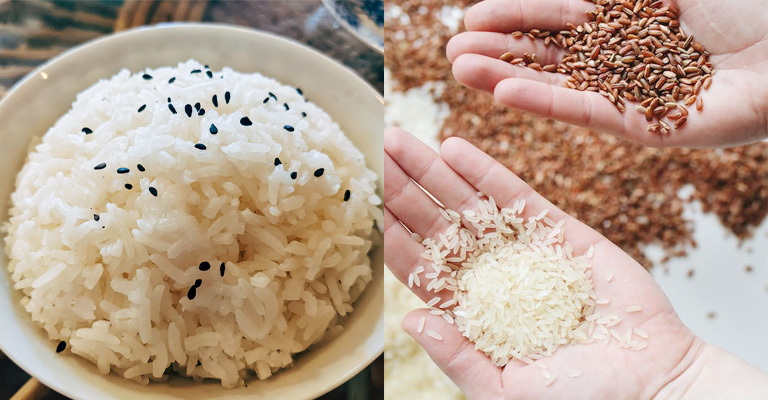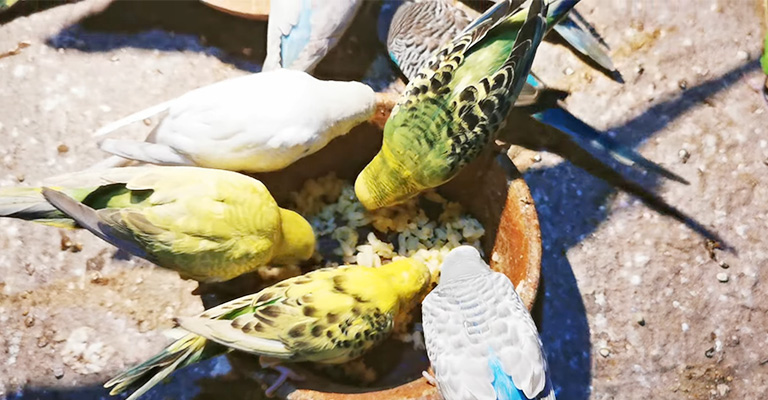To tame our feathered friends, we can’t resist ourselves to try out different foods on them. Rice is the most common of them all.
Perhaps we are too interested in bonding with our avian friends that we forget to ask ourselves, is rice safe for birds? Can birds safely consume rice? Feeling not so confident?
Before you regularly start to offer your birds rice, it’s essential to know if rice is okay for them or not. Can birds eat rice? Let’s educate ourselves and take one more step ahead to raise our small friends.

Rice Nutrition Value
Over 20 countries in the world have rice as the staple food. It is rich in carbohydrates and is a primary source of energy in our diets. Here’s a look at the nutritional value of rice.
- Carbohydrates: A primary source of carbohydrates. It contains complex carbohydrates that break down slowly and provide sustained energy.
- Protein: Although we consume a high amount of protein from our dairy firm rice can also be a minor source of protein. Each 100 g of rice contains 2.7 g of protein, essential for muscle development and overall health.
- Vitamins: While rice is not exceptionally rich in vitamins, it does contain small amounts of B vitamins, including thiamine, riboflavin, and niacin.
- Minerals: Essential minerals such as magnesium, phosphorus, and potassium are also present in rice.
- Fiber: Brown rice, in particular, is higher in fiber compared to white rice. Fiber aids in digestion and can help regulate blood sugar levels.
Rice is sufficient with all the elements we mentioned above. But do birds need rice to fill up their need for carbs or minerals? Let’s find out in the next part of our article.
Cooked or Uncooked – Can Birds Eat Rice?

While rice is safe for birds, it shouldn’t be the only source of food for birds. Our little friends need a diverse diet to meet their nutritional needs. Here’s how much uncooked and cooked rice you can offer your little buddies.
Is Uncooked Rice Safe for Birds?
A myth goes that uncooked rice is harmful to birds. To this day, many people believe that raw rice can even kill the birds. Is it so?
Many bird experts including ornithologists have observed many wildlife birds feed on rice paddies. And they work completely fine.
Despite what others believe, raw rice is completely safe for birds. They are hard and dry but birds with longer beaks like Cockatiel or Love Birds can easily break them into pieces and eat them to digest.
However, you can’t force the birds to eat them. Mostly, you can offer them rice in addition to their regular diet. If they like it, they will consume it on their own.
Plus, to make it easier for them, you can use a blender and break raw rice. Later, offer your birds tiny rice pieces. Smaller pieces will help them eat the chunks effortlessly and with less time too.
This goes for raw rice. But what about cooked rice? Keep reading and find out for yourself.
Is Cooked Rice Safe for Birds?
Now, we know raw rice is safe for birds. When it comes to cooked rice, they are also equally safe for our small friends.
Birds can digest cooked rice without any issues. In fact, many bird rehabilitation centers use cooked rice as part of their diet for injured or orphaned birds.
However, don’t think of seasoning the rice. You may want to add spice or sauce to improve the taste of rice. But birds don’t follow our diet. Such ingredients can negatively harm your birds.
Can I Handfeed Rice to A Baby Bird?
If you want to tame a bird from an early age, you may adopt a baby bird. You regularly have to hand-feed the baby birds because they are too fragile on their own.
Additionally, hand-feeding can be an excellent way to bond with your bird. While many nutritional supplements are available to provide baby birds, many can still introduce boiled rice to them to avoid extra costs.
You can offer cooked rice to baby birds. After all, baby birds eat whatever their mother or caregiver provides them. However, it’s important to ensure that, you are not only feeding them rice. Provide them with a handful of sources of protein, vitamins, and minerals.
Quality hand-feed foods are available online and perhaps at your nearest bird’s shop. Nutri Bird Formula can be a smart selection. You will have proper guides on how to feed the baby bird and to which amount.
Birds Who Naturally Eat Rice

Many birds naturally eat rice from the rice paddies. They roam freely in nature and feed on rice where it’s available in plenty. The birds have adapted to forage for rice grains and other similar foods in their native habitats.
Birds like Red Junglefowl (Gallus gallus), Wild Ducks, House Sparrows, Doves and Pigeons, Finches, Red-winged Blackbird (native to America), Grackles (native to America), and some Cockatiels feed on rice often.
Remember that, the birds we mentioned here do not eat rice as their sole or primary food source. They keep it on their diet besides other foods.
Can I Offer Rice to The Wild Birds?
Of course, you can. The best way to do so is, to hang a rice bowl in your backyard and wait for other birds to come and eat them.
Large birds tend to eat rice more than our small home sparrow birds. However, it’s also essential to add other seeds and grains like sunflower seeds or corn beans to the bowl. It will offer a variety of nutrition to the birds.
Wrapping Up
Now you know the benefits of rice for you and the feral birds outside, right? We hope it won’t be a problem next time you add rice to your bird’s diet.
Furthermore, don’t forget to add a set of other beans and soft foods. Such as eggs can be a great source of protein for your birds. Spinach or other veggies should be added to the list also.
Do you like our article? Feel free to share it with your friends and let them know about us. We will come back soon with more useful information on birds and their guides.
Thanks for being with us.